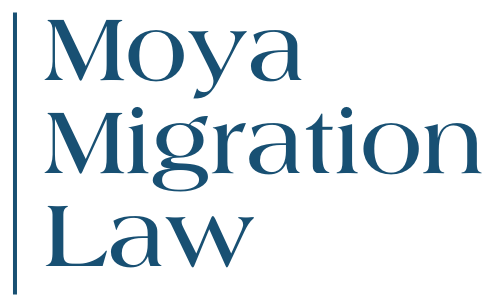Introduction
Receiving a visa refusal from the Department of Home Affairs is a profoundly stressful event, but this decision is not necessarily the end of your migration journey. An appeal to the Administrative Review Tribunal (ART) provides a critical opportunity to challenge the outcome and have your visa application reassessed.
The ART performs a “merits review,” meaning it stands in the shoes of the original decision-maker to conduct a fresh and independent assessment of your case, including any new evidence you provide. Understanding the common grounds for a successful appeal is essential for navigating the appeal process. This guide outlines the key reasons the ART overturns a visa refusal decision, offering valuable insights for building a strong case.
Overturning a Refusal Due to Departmental Errors
Procedural Unfairness & Breaches of Natural Justice
A visa refusal can be overturned if the Department of Home Affairs failed to follow a fair and proper process when making its decision. This legal principle, procedural fairness or natural justice, is concerned with the fairness of the decision-making process itself, not the outcome.
When interpreting why your visa was originally refused, if the ART determines that the original process was flawed, the ART can set the decision aside on that basis alone. A key element of procedural fairness is the “fair hearing rule.” Under Section 57 of the Migration Act 1958 (Cth), the Department is generally obligated to:
- Provide you with any credible, relevant, and significant adverse information it holds
- Invite you to comment on this information before deciding
Common breaches of this rule include:
- Failing to give you a reasonable opportunity to respond to negative information
- Deciding on the statutory timeframe for you to reply has expired
- Not notifying you about missing documents or other concerns before refusing the visa application
For instance, if the Department received an anonymous tip that your partner relationship was not genuine, it could not use that information to refuse your visa without first giving you a chance to address the allegation.
Incorrect Interpretation & Application of Law
The Australian migration system is governed by the highly complex Migration Act 1958 (Cth) and its associated regulations. Given this complexity, Departmental case officers can and do make mistakes when interpreting or applying the law, which is a well-established reason for the ART to overturn a visa refusal.
These legal errors can happen in several ways:
- A decision-maker might apply the wrong legal test
- Misunderstand the requirements for a specific visa subclass
- Fail to consider relevant provisions of the law
This is particularly common in visa categories with subjective criteria. Examples of such errors include:
- Incorrectly assessing the points for a skilled visa application by misinterpreting work experience
- Misunderstanding the legal definition of a “de facto relationship” or “member of the family unit”
- Applying outdated departmental policies that are inconsistent with current legislation
The ART conducts a fresh review of your case and has the power to correct these legal mistakes. If the Tribunal finds that the original refusal was based on a misapplication of the law, it will substitute the correct legal interpretation and make a new decision on the merits of your visa application.
Request Your Free 15-Min Consultation
Winning Your ART Appeal with New Information
Submitting New & Compelling Evidence
One of the most powerful aspects of an ART appeal is the ability to present new evidence that was not included in your original visa application. The ART conducts a “merits review,” meaning it examines your case afresh and is not limited to the information the Department of Home Affairs initially considered.
This provides a crucial opportunity to strengthen your case and directly address the reasons for the visa refusal. Submitting new and compelling documentation can fundamentally change the outcome of your appeal. This evidence should be targeted to resolve the concerns raised in the refusal decision.
Examples of robust new evidence include:
- Partner Visas: If a refusal was based on doubts about a “genuine and continuing” relationship, you can provide updated proof developed during the appeal process. This may include:
- A marriage certificate
- The birth certificate of a child
- New joint property leases
- Updated bank statements showing a long-term shared financial commitment
- Student or Skilled Visas: For visa refusals, you might provide:
- For student visa refusals based on the Genuine Temporary Entrant (GTE) requirement: a detailed career plan or market research demonstrating the value of your Australian qualification in your home country
- For skilled visa refusals: a new, positive skills assessment or proof of relevant work experience gained while waiting for the hearing
- Experienced Reports: Independent experienced reports can add significant weight and credibility to your claims. These might come from:
- A forensic psychologist for a character-related refusal
- A medical specialist to clarify health concerns
- A financial analyst to verify your financial capacity
Demonstrating a Material Change in Your Circumstances
The ART will need to assess your circumstances as they exist at the hearing, not at the original visa application or refusal time. This means that a significant life event, or a material change in your circumstances, can decide your appeal.
The lengthy appeal process can become a strategic advantage, giving you time to demonstrate an apparent change that satisfies the visa criteria. Any significant event that strengthens your eligibility should be presented to the Tribunal.
Consider a scenario where a partner visa was refused; if the couple has since married or had a child with their Australian partner, this represents a fundamental change that the ART must consider.
Other examples of a material change that can lead to a successful appeal include:
- Completing a new qualification or gaining significant work experience that is relevant to your visa application
- A change in your health status or that of a family member in Australia, requiring your presence for care
- A notable deterioration in the political or security situation in your home country, which may be relevant for a protection visa appeal
Using Compelling & Compassionate Grounds in Your Appeal
Beyond a visa refusal’s legal and procedural aspects, a powerful human element can be introduced into your ART appeal. The Migration Act 1958 (Cth) deliberately does not define “compelling” or “compassionate” circumstances, which allows the Tribunal the flexibility to consider the unique, human merits of each case.
These arguments help to humanise your situation for the Tribunal Member, providing the “why” behind your visa application. While these grounds can be highly persuasive, a successful appeal is never won on sympathy alone.
A strong case must be built by creating a powerful narrative thoroughly supported by objective, credible evidence. You cannot simply state that your circumstances are compelling; you must prove every aspect of your story with third-party documentation. The ART may overturn a decision if the Department of Home Affairs failed to weigh these factors properly.
Presenting a well-documented case based on these grounds can be a potent strategy. Some examples of arguments that can be built on compelling and compassionate circumstances include:
| Argument Ground | Explanation & Examples |
|---|---|
| The Impact on Australian Citizens | Focuses on the significant hardship or emotional distress that would be caused to an Australian citizen, particularly a child, if the visa appeal is unsuccessful. |
| Serious Health and Medical Issues | Presenting evidence of a serious medical condition affecting the applicant or a close family member in Australia, where the applicant’s presence is necessary for care or treatment. |
| Significant Hardship | Covers a range of situations, including severe financial hardship or a credible threat of danger, persecution, or substantial harm if forced to return to the home country. |
| Meeting Specific Visa Requirements | Demonstrating compelling reasons as a formal legal requirement for certain visas, such as waiving the “Schedule 3” criteria for some onshore Partner visa applicants. |
Request Your Free 15-Min Consultation
Case Studies: Successful ART Visa Refusal Appeals
Overturning a GTE Student Visa Refusal
A common reason for a student visa refusal is the applicant failing to satisfy the GTE requirement. The Department of Home Affairs may not be convinced that the applicant intends to stay in Australia temporarily for their studies. However, a visa refusal on these grounds can be overturned at the ART with comprehensive new evidence.
Consider a case where a student visa application was refused because the Department doubted the value of the chosen course to the applicant’s career and noted weak ties to their home country. A successful appeal strategy at the ART involved submitting a substantial body of new evidence that directly addressed these concerns.
This evidence included:
- A detailed career roadmap and business plan demonstrating how the Australian qualification would be used upon returning to their home country
- Comprehensive market research comparing the education systems and justifying the choice of study in Australia
- A structured study timeline and documentation of prior work experience, linking the new course to a logical career progression
- Updated financial documents and evidence of strong family ties, reinforcing the incentive to return home after completing the studies
By presenting this high-impact, targeted evidence, the applicant was able to transform their case. The ART, conducting a fresh merits review, could see a clear and logical justification for the student’s plans, leading to the visa refusal being overturned and the case being remitted to the Department.
Overturning a Character Refusal & Securing Release
A visa refusal or cancellation on character grounds under Section 501 of the Migration Act 1958 (Cth) is one of the most serious migration issues an applicant can face, often resulting in immigration detention. Despite the severity, a successful ART appeal is possible by presenting compelling evidence of rehabilitation and demonstrating a low risk to the Australian community.
In a complex case, an applicant had their bridging visa refused due to a past criminal conviction and was subsequently placed in detention. The appeal to the ART was successful because it focused on proving that the applicant’s past conduct did not indicate their current character or future risk.
Key evidence that led to the refusal being overturned included:
- Experienced Reports: A forensic psychologist provided a report with a low-risk assessment score, indicating a minimal chance of re-offending
- Proof of Rehabilitation: The applicant supplied evidence of completing therapy and counselling sessions, along with testimonials from employers and community organisations
- Strong Community Ties: The appeal highlighted the applicant’s stable employment, family support network, and the significant hardship their removal would cause to Australian citizen children
This evidence allowed the Tribunal to form a different view from the Department, focusing on the applicant’s current circumstances and low re-offending risk. The successful appeal secured the applicant’s release from detention. It resulted in the grant of a new bridging visa, demonstrating that even the most challenging character-related refusals can be won with a well-prepared case.
Request Your Free 15-Min Consultation
The Role of Skilled Representation in Your Appeal
Navigating Legal Complexity with Experienced Guidance
While you are not required to have legal representation, the ART appeal process is a complex and high-stakes legal proceeding. Australian migration law is notoriously intricate, and navigating it without professional guidance puts you at a significant disadvantage.
Applicants who represent themselves can fall into common traps that undermine their case. They may focus on emotional arguments rather than the specific legal or factual reasons for the visa refusal, or they might miss fatal procedural errors, such as the strict time limit for appealing. Furthermore, a self-represented applicant may not understand what kind of new evidence the Tribunal finds persuasive or how to structure it for maximum impact.
Strategic Advantages of Professional Representation
Engaging an experienced migration lawyer or registered migration agent is often critical to achieving a successful appeal. A skilled representative provides a distinct strategic advantage that can be the difference between a visa refusal being affirmed or overturned.
Their experiencedise can transform your appeal by:
| Strategic Advantage | Description |
|---|---|
| Providing an Experienced Diagnosis | An objective and honest assessment of your case’s strengths, weaknesses, and realistic prospects of success to help you decide to appeal. |
| Identifying Legal and Procedural Errors | Using a trained eye to spot mistakes made by the Department, such as breaches of procedural fairness or incorrect applications of migration law. |
| Formulating a Strategic Case | Building a case around the most promising arguments by researching past Tribunal decisions and aligning your case with successful legal precedents. |
| Guiding Evidence Collection | Guiding what specific documentation, from experienced reports to witness statements, is needed to address the reasons for refusal directly. |
| Drafting Persuasive Submissions | Constructing a straightforward narrative in writing that systematically dismantles the Department’s arguments and applies the law to the facts of your case. |
| Providing Effective Hearing Advocacy | Acting as your advocate at the hearing, preparing you and witnesses for questioning, and ensuring your case is presented in its strongest possible light. |
Request Your Free 15-Min Consultation
Conclusion
A visa refusal can be overturned at the ART by demonstrating departmental errors, submitting new and compelling evidence, or arguing compassionate grounds. A well-prepared, strategic appeal is fundamental to success, and the process underscores the significant advantage of having skilled legal representation to navigate the complexities of migration law.
Securing experienced visa refusal appeal guidance is the most critical next step if facing a visa refusal and considering an appeal. Contact Moya Migration Law today for a comprehensive assessment of your case; our Adelaide-based specialists offer the trusted experiencedise and tailored strategies needed to challenge the decision and work towards securing your future in Australia.









